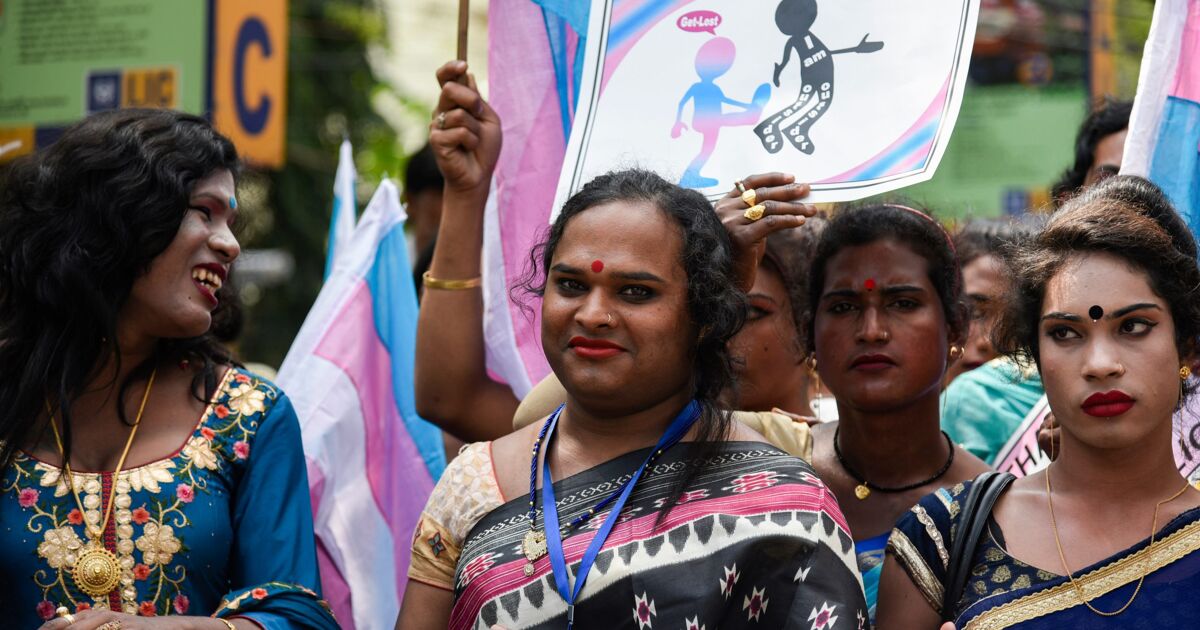Indian court rules that trans women are women
In a historic victory on June 16 for the LGBTQ+ community in India, the Andhra Pradesh High Court issued a ruling stating that Indian law cannot deny recognition of transgender women as women based on their ability to reproduce. This allows for protections from equality and anti-discrimination laws for cisgender women to apply to transgender women as well.The case was started by a petition filed by Viswanathan Krishnamurthy and his family to dismiss a dowry harassment case brought by his now-estranged wife, Pokala Sabhana, a transgender woman. Related Trans woman wins historic victory in India in getting a passport for her son She secured a passport for her son as a single mother. Sabhana claimed that Krishnamurthy and his family subjected her to cruelty and demanded a dowry, which prompted her to seek protection under Section 498A in the Indian Penal Code. Section 489A establishes punishment for any cruelty inflicted on a married woman by her husband and his relatives, which includes imprisonment of up to three years and a fine. Never Miss a Beat Subscribe to our newsletter to stay ahead of the latest LGBTQ+ political news and insights. Subscribe to our Newsletter today Shabana and Krishnamurthy lived together in Ongole, a city on the east coast of southern India in the state of Andhra Pradesh. According to court documents obtained by the Washington Blade, the two had ceased communication and separated, and Krishnamurthy moved to Chennai.Shabana had gone to the Ongole Womens Police Station, alleging that her in-laws and husband threatened her life and abused her. From there, the police registered a case against the husband and his parents under Section 498A.In the petition filed in 2022 to have the charges dropped, Krishnamurthy and his family argued that Shabana could not invoke Section 498A because she is a transgender woman. They argued that because she is unable to conceive a child, she does not meet the legal definition of a woman. They also contended that Shabanas claims were baseless and lack evidence.Presiding over the case was Justice Venkata Jyothirmai Pratapa. In his ruling, he rejected their arguments that tie womanhood to reproductive capacity, declaring such views legally unsustainable and misaligned with the countrys constitutional guarantees of dignity, equality, and identity.A trans woman, born male and later transitioning to female, is legally entitled to recognition as a woman, Pratapa declared. Denying such protection by questioning their womanhood amounts to discrimination, said the High Court in its ruling.The court cited Articles 14, 15, and 21 in this recognition, which respectively guarantee equality before the law, disavow discrimination based on sex, and protect a citizens right to life and personal liberty.Unfortunately for Shabana, her case was dismissed under the second reason provided, a lack of substantial evidence to back her claims.Though it doesnt seem like Shabana will be getting the justice she sought, this case brought about a landmark decision for the transgender population in India. I am relieved, the delighted and thank the Andhra Pradesh High Court and the judge for upholding our basic human right to be identified as what we want. What better reason could that be for celebrating this Pride Month? said Kalki Subramaniam, a prominent trans activist and artist, told the Washington Blade. For transgender community, especially trans women, this verdict means a lot.By affirming their legal status as women, the court has shattered discriminatory barriers and reinforced the fundamental principle that identity is valid and deserving of full legal protection, Subramaniam continued. This ruling marks a significant moment of progress, sending a clear message that our legal frameworks are evolving to be more inclusive and reflective of the diverse realities of our society. It is a victory of human rights and a beacon of hope for a more equitable future.Subscribe to theLGBTQ Nation newsletterand be the first to know about the latest headlines shaping LGBTQ+ communities worldwide.



